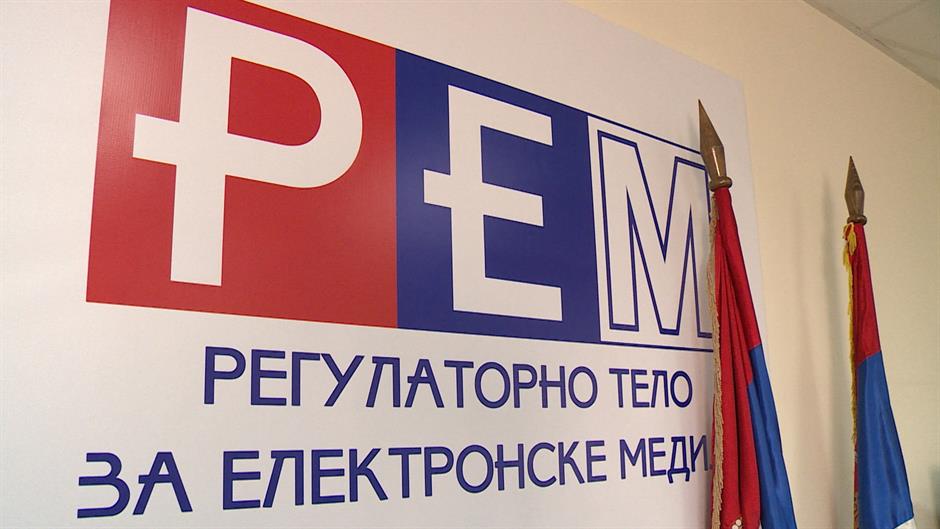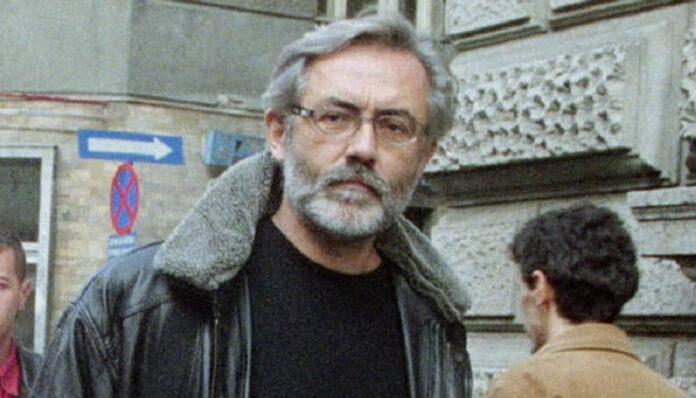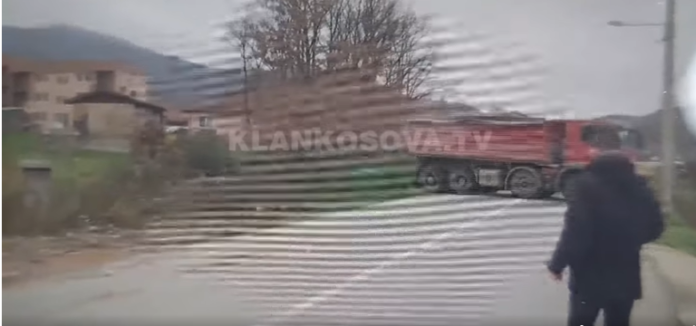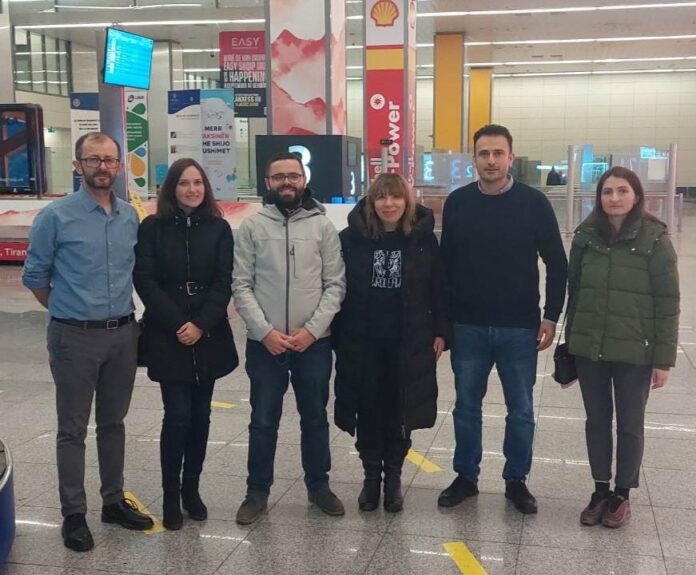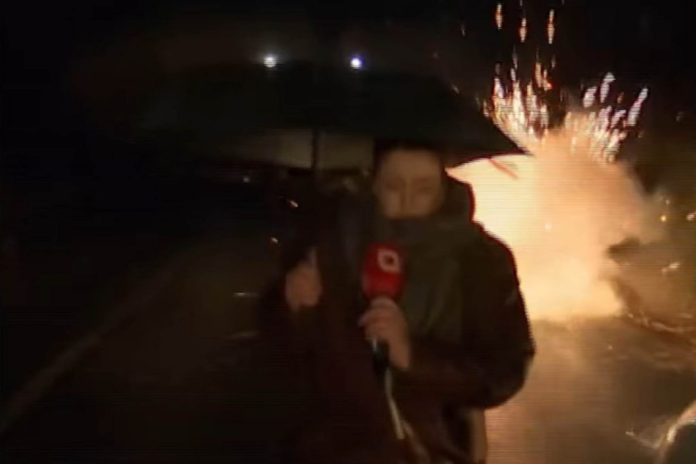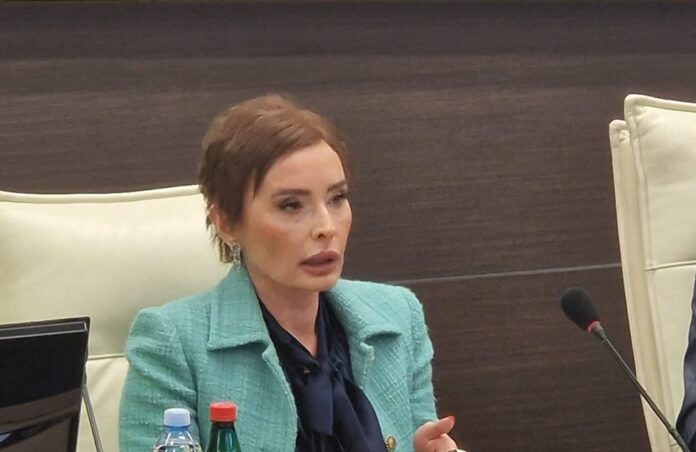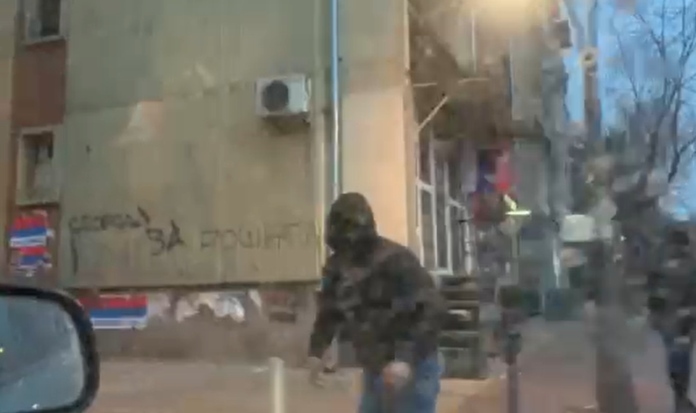Justice in Serbia for the murder of journalist Slavko Ćuruvija, journalist and publisher, founder of the newspapers “Telegraf”, “Dnevni Telegraf” and “Evropljanin” has been awaited for 23 years. The Court trial has been going on for eight years. And it’s not over yet. In the week of December 5, the Court of Appeal in Belgrade heard the appeals of the prosecution and the defense. Unofficially, according to daily “Politika”, the Appellate panel has just decided to open hearings over four days for submission of evidence in March of 2023. The Court of Appeal verdict would be final. A decision is pending. Justice awaits.
First-instance verdicts were passed twice – in 2019 and 2021. Four former members of State Security were sentenced to a total of 100 years in prison. Radomir Marković, former head of the State Security Service (SDB), who has been in prison since 2001 for other political murders for which he was sentenced to 40 years, was sentenced to 30 years. Milan Radonjić, head of the Belgrade Department of the State Security, was also sentenced to 30 years.
Ratko Romić, chief inspector of the Second Department of the State Security Service, was sentenced to 20 years. The same sentence was imposed on State Security member Miroslav Kurak, who was named in the indictment as the person who pulled the trigger.
Kurak remains at large. In July 2017, the court on appeal released Radonjić and Romić from prison custody and placed them under house arrest with ankle monitors.
Ćuruvija’s murder occurred during the NATO bombing of FR Yugoslavia, on Orthodox Easter Sunday, April 11, 1999, in the center of the Serbian capital – Belgrade, in front of the building where he lived. Slavko’s wife, Branka Prpa, who was with him, was pistol-whipped unconscious.
From the very beginning, the trial was accompanied by obstructions, intimidation of witnesses, and attempts to suppress key evidence.
It was subsequently revealed that preparations were underway for the murder of chief Inspector Dragan Kecman, who was in charge of the investigation into the murder of Slavko Ćuruvija. There were several instances of unauthorized access into the Ministry of Interior database containing personal data of the members of the Commission for Investigating the Murders of Journalists in Serbia. It became known that these had been conducted by various offices within the Interior Ministry itself. This was significant as the Commission had been instrumental in pushing forward the investigation into the murder of Slavko Ćuruvija. None of the above were investigated or received a judicial epilogue.
For the prosecution, for the Commission for Investigating the Murders of Journalists, and for the entire media community in Serbia, there is no question that Slavko Ćuruvija was killed by the regime of Slobodan Milošević. Undoubtedly, the trial unmasked the entrenchment of the deep state, even 22 years after the removal of Milošević from power.
For all these years as well as in the present appeals trial, the defense rejects all the evidence.
The atmosphere during the public session in early December of the Court of Appeal in Belgrade was painful. It was also highly unpleasant. Veran Matić, the president of the Commission for Investigating the Murders of Journalists, as well as representatives of the Slavko Ćuruvija Foundation, sat again in the courtroom for hours – just two meters from the accused.
The indictment points to the Milosevic regime; the verdict points to persons unknown
Milenko Mandić, the organized crime prosecutor, strongly criticized the first instance verdict. He pointed out that the court previously had rejected important evidence and testimonies and as a result awarded low sentences to the four defendants, former members of State Security.
The indictment on the murder of Slavko Ćuruvija contends that the murder was committed by Kurak, who shot, and Romić, who assisted and who pistol-whipped Ćuruvija’s wife, Branka Prpa, who was with Ćuruvija at the time of the murder. The judgment of the Special Department of the High Court for Organized Crime however states that the perpetrator is person unknown, and that Kurak and Romić aided and abetted the murder at the scene.
The indictment furthermore contends that the person who ordered the murder was instructed to do so by “the very top of the government”, alluding to Slobodan Milošević and his wife Mirjana Marković. On the other hand, the verdict states that the instigator is a person unknown, but that the reason for the killing was “maintaining power”.
Prosecutor Mandić pointed out that “the verdict contains significant violations of the criminal procedure code, wrongly established facts and was not in line with the indictment”. He insists that everything is known and that the witnesses directly pointed to the perpetrators of the murder.
Furthermore, Mandić argued that the verdict did not take into account the testimony of journalists who said that the Milošević regime considered Ćuruvija to be a threat to their political power.
Mandić reminded that the murder was foretold in daily newspaper “Politika Ekspres” with the article “Ćuruvija welcomes the bombs” in which he was labeled as a traitor. In addition, that the article had been ordered by Politika’s editor-in-chief Dragan Hadži Antić, a close friend of Mirjana Marković, Slobodan Milošević’s wife.
Mandić requested the Court of Appeal to allow new hearings to present “numerous pieces of evidence that the first-instance court rejected as superfluous”, so that all “facts be undisputedly established” and to issue a verdict that corresponds to the gravity of the crime that was committed.
Mandić asked for a higher, 40-year prison sentence for each of the four accused.
Veran Matić, president of the Commission for Investigating the Murders of Journalists in Serbia, emphasizes that “the prosecutor was very sharp and precise and with a very clear appeal helped the Appellate Panel to better understand all the evidence that led to two guilty verdicts with high prison sentences for the very top of the all-powerful State Security”.
Outrageously romanticizing the killer
The defense lawyers disputed absolutely everything – from claiming that there was no evidence to prove the crime, that the witnesses were orchestrated – to outrageously and irrelevantly romanticizing the killer by saying that he was „the most beautiful man in Belgrade“, so that the witness to the murder, namely Ćuruvija’s pistol-whipped wife, would surely have remembered if he indeed was the murderer. As it happened, Ćuruvija’s wife could not for certain identify the perpetrator.
The defense lawyer said this with a smile, in an attempt to create a tabloid-like adulation for the defendants among part of the public. Representatives of the media community in the audience were shocked by the extreme mockery of the victim and the trauma suffered by the family of the murdered Slavko Ćuruvija.
The main thesis of the defense is that the goal of this legal procedure is not is about “establishing the truth, but payback against the State Security and the regime of Slobodan Milošević”.
There was no impression that the defense even acknowledged that Slavko Ćuruvije had been brutally murdered, and that a media vendetta had been waged against him.
The defense asked for an acquittal.
Veran Matić points out that the defense continued with rhetoric and arguments from the 1990s, the time of the media and political preparation for the murder of Slavko Ćuruvija:
“The defense’s rhetoric also included disinformation that Ćuruvija cooperated with criminals, that he was working on behalf of a foreign power, while the accused were either a “conqueror of women’s hearts” or some sort of Superman. The intention is clear – to dispute the fact that the State Security surveillance of Slavko Ćuruvija began much earlier, that 27 State Security agents were involved in that surveillance with the intention of planning the murder in detail.”
The President of the Commission for Investigating the Murders of Journalists in Serbia underlines that “the relativization of events related to political murders and repression in the 1990s, as well as the attempted justifications of the murder of Serbian Prime Minister Zoran Đinđić, has been going on for two decades”. Đinđić was killed in 2003 by members of the security apparatus, three years after the overthrow of Slobodan Milošević’s regime.
Relativization, concludes Matić, “has been dominant on the political scene for a long time, it captured both the past and the present, and it seems that it will dominate in the future as well. Serbia has never been ready to face its bad past from the nineties, revisionism prevailed, and the rule of law will also suffer as a result”.
“Object that was worked on”
One of the defendants, Milan Radonjić, said that he had acted in accordance with the law, adding: “I am sure that the judges who sentenced me know very well that I am not guilty.”
The other, Ratko Romić, claimed that the verdict was “malicious”.
The defendants spoke of the victim as an “object that was worked on”, as if they were not talking about a person.
They emphasized that they didn’t even know who Slavko Ćuruvija was, that is, they belittled the fact that the murdered journalist at the time was considered “state enemy number one”.
Perica Gunjić, editor-in-chief of Cenzolovka, a website on media freedom, and part of the Slavko Ćuruvija Foundation, is not surprised:
“This relativization of crimes is in fact a message to witnesses and the state that State Security is still very deeply infiltrated into the system and even today controls many things: influences investigations, court processes and many other events in the state. Everything that happened before our eyes was a parade of showing the power of the State Security, an agency that should have experienced some kind of lustration a long time ago, because it was involved, among other things, in organizing the most serious crimes. And, to this day, no one from the State Security has ever been convicted”.
Gunjić who followed the trial carefully, adds, “exactly because of this, the last session before the Court of Appeal was the continuation of an extremely murky episode that has been going on for eight years, since the indictment was filed. “
“It is painful because the evidence and clues and logic in the murder of Slavko Ćuruvija are clear. The state did it, State Security followed him, they knew his every word”, the editor-in-chief of Cenzolovka highlights.
Inspector Kecman
While the decision of the Court of Appeal is awaited, many other questions have surfaced.
Among other things, why has there been no investigation into the allegations that the security of Dragan Kecman, the chief inspector who led the investigation into the murder of Slavko Ćuruvija, was threatened? Why was there massive unauthorized access to the Ministry of Interior database containing personal data of members of the Commission for Investigating the Murders of Journalists in Serbia?
Matić underlines that, “threats to inspector Kecman were not processed”:
“The first one was recorded back in 2006, then in July 2016, “intelligence officers” wrote a report about threats against Kecman and sent it to the Ministry of Interior. In March 2017, it turned out that the report was not in the Ministry of Interior system. Considering the seriousness of the situation and the fact that nothing was done, Kecman and I called the person mentioned as the organizer of the possible attack for a conversation. We warned him that we know about his intentions and that the authorities have been informed”.
New threats to inspector Kecman followed a specific activity related to the arrest of Miroslav Kurak was agreed upon in 2021, addresses Matić adding that in a” reliable contact conveyed to Kecman a conversation he had with B. C., a high official of the State Security at the time of the murder of Ćuruvija”:
“B. C. said “that a friend from South Africa called him, that he is putting pressure on him to solve the problem he has, and that the police are working intensively to find him, and that Kecman is responsible for all of this. His friend also told him that he had to solve the problem as best he could””
It was a clear message.
“There was a lot of pressure and obstruction in the work of the Commission for Investigating the Murders of Journalists in Serbia”, recalls Matić, “we certainly did not expect to work in peace, but the problem was no reaction from the system when it was necessary to investigate threats, or unusual actions that threatened the safety of the members of the Commission”.
Miroslav Kurak, designated as the killer of Slavko Ćuruvija, escaped actual arrest twice – a day or two before the police action, he would just vanish.
Hunting in Africa
“When Serbian police in mid- January of 2014, arrested those suspected of organizing the murder of journalist Slavko Ćuruvija, Miroslav Kurak apparently did not think that he would actually be arrested”, specifies Branimir Đokić, who at the time worked as a journalist for daily Vesti.
At the time, rumors circulated that Kurak hid in Africa and was said to be engaged in hunting. Đokić reminds that it took him “few minutes to get to the website of a hunting association in Tanzania, where Miroslav Kurak’s name and contacts were, listed as their hunter”:
“I was surprised that there was an email where you can write to him if you are rich or an adventurer who wants to come to Africa and hire him to organize a hunt for big African game. Using my office email, I sent several questions to Kurak’s address regarding the assassination of Slavko Ćuruvija”
There was no answer. The name and email soon disappeared from the website.
“Kurak apparently did not think that he was in danger of arrest. I was surprised that the prosecutor’s office and the police missed this clue, and that, at least as far as the public knows, before the arrest of the group that killed Slavko Ćuruvija, they did not send a request for Kurak’s arrest via international legal cooperation or Interpol”, underlines Đokić.
Fighting crime
A clearcut conviction would send a strong message that the murder of a journalist, the murder of free speech in Serbia, will not go unpunished. Nor would any kind of violence against journalists.
The Court of Appeal in Belgrade has several options before it. It can confirm the first-instance verdict of 100 years in prison for all the accused or to open for a new trial. In the latter case, the evidence would have to be presented anew, and the judgment of this court would be final.
“In both options, I expect guilty verdict”, Veran Matić is decisive:
“The conviction will be a certain kind of peace for the family of Slavko Ćuruvija. It would be a great victory in the fight against impunity for murders of journalists. Also, a confirmation that it is possible, even after 23 years from the murder, to bring the killers to justice. The government of Aleksandar Vučić, and he himself, who supported the establishment of the Commission, would get additional motivation to deal with crimes, whether it be political murders or war crimes, because none of them must become obsolete and to be forgotten”.
“Slavko Ćuruvija was a normal citizen of this country, who was a patriot, the way a man should be”, reminds Perica Gunjić:
“In many ways, he was a symbol of that time. I hope that the judicial panel will have the strength and courage, and I am sure that it has the expertise, to evaluate all the evidence and pass an adequate verdict, which will help this country to move forward in the sense that it will not tolerate impunity for crimes against journalists. There have been so many crimes against journalists in this country, and none of them have ended with a verdict for those criminals”.
On the watershed
The trial for the murder of Slavko Ćuruvija is significant for all journalists in Serbia, but it cannot be said that the courtroom of the Court of Appeal was full of journalists.
In addition to Veran Matić and Perica Gunjić, Ivana Stevanović, the executive director of the Slavko Ćuruvija Foundation, representatives of the International Federation of Journalists, ANEM, the Independent Association of Journalists of Serbia, the Association of Journalists of Serbia were also present. The trial was reported by journalists from TV N1, Danas, Politika, KRIK and Cenzolovka. The trial was also followed by a representative of The Organization for Security and Co-operation in Europe (OSCE) Mission to Serbia.
The Court of Appeal does not announce its decision publicly, but does so in writing, by sending its decision to the addresses of those who appealed. The judges say they don’t have a deadline for the decision on the verdict.
We are waiting. On the watershed. It’s an obvious choice between the rule of law, justice and fighting impunity vs. terrible crimes, distortion of facts and manipulation.
This article, which follows a previous one, has been written by the investigative journalist Jelena L. Petković. She has been conducting research for many years into the killing and disappearance of journalists in Kosovo. Her work included interviews with more than 200 interlocutors: relatives, colleagues, acquaintances and members of international missions. Her work has contributed to disclose new information on the disappearances and killings.


